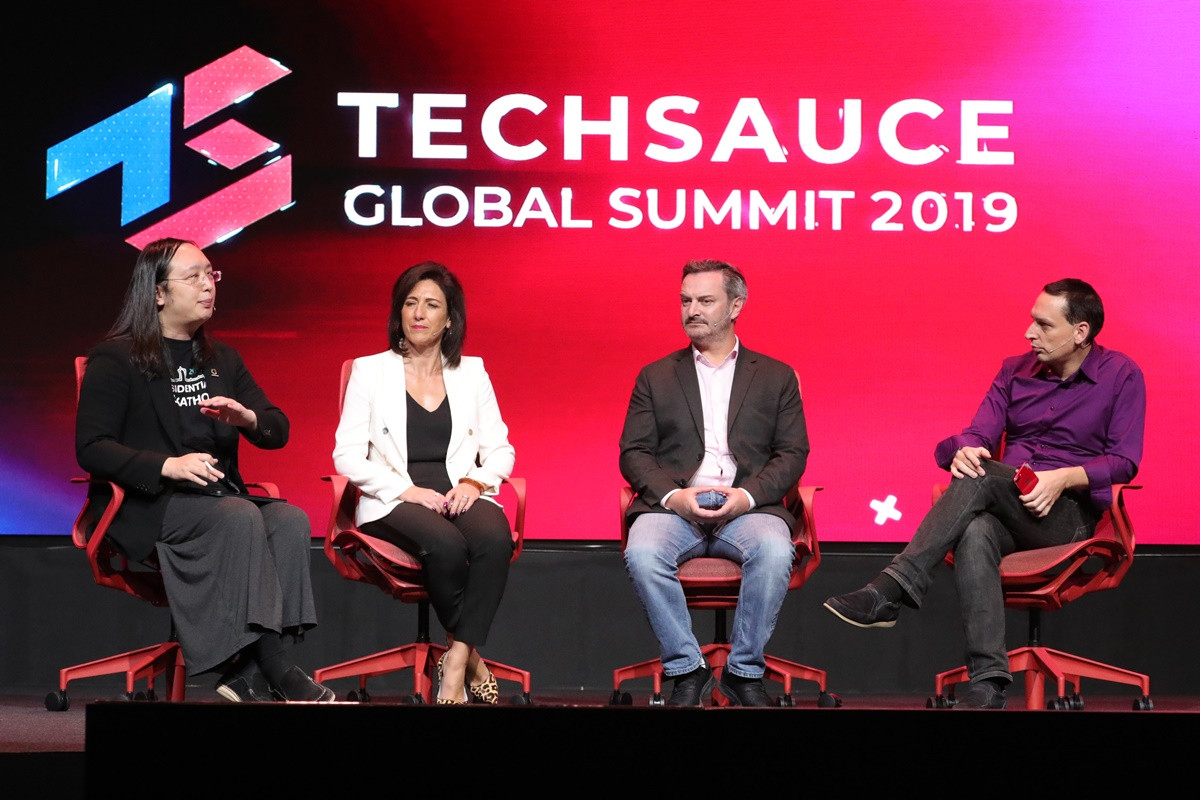Driving Governments towards Technological Adoption: Working Together to Build Smart Cities

The Shifting Role of Governments in Driving Technology
Audrey Tang, Digital Minister of Taiwan started off the session by announcing that while technology is useful, people are the drivers to problem-solving, and not technology. She emphasized that the role of governments has shifted from being the organizer of movements to becoming the enabler and facilitator that ask people to participate in solving problems.
Catherine Caruana-McManus from Meshed agreed with Tang, adding that in the last 18 months governments worldwide have been reimagining the way they work with the private sector. A key issue that is often brought up is the ownership and democratization of data, with the direction going towards more sharing of data to drive government projects forward sustainably.

Opportunities for Young Entrepreneurs to Work with Governments
Jonathan Reichental, Founder and CEO of Human Future said that, with governments looking to adopt new technologies, the potential partnerships between governments and the private sector has become a trillion-dollar business opportunity for new players. Jonathan added that there are now more amazing problems to solve for smart cities than ever, urging new players to seize the opportunity to deliver solutions for the public sector.
Challenges in Private-Public Partnerships
For one project, there would be numerous issues to solve and challenges to overcome. Catherine suggested that the obstacles to private-public partnerships most often occur due to the lack of translation, advising firms to come to an understanding of the problem in order to arrive at a conclusion that would benefit all parties.
Moreover, she said another role of companies is to assist governments and local administrations in preparing the right proposals that will help them arrive at a solution that is needed.
Turnkey Solutions or Open Source?
Though some governments tend to look for turnkey solutions when seeking new technology for implementation, an alternative may be an open source solution that can be adapted over time.
According to Jonathan, these different methods may be due to the differences in each culture. However, he expressed his view that governments should not try to do everything themselves; instead, outsourcing specific roles to experts might be a better solution in the long term.

Meanwhile, Audrey shared her example about startups in Taiwan. For startups looking to experiment with a new idea or solution, they can file a sandbox application that will allow them to try out a new technology for one year. If they are able to demonstrate to the public that the technology is beneficial, every party wins.
Catherine then advised companies looking to work with governments that it is important to understand the context of the problem that they want to solve, while good governance is also crucial to winning government projects.
Participation of the Social Sector
Audrey also talked about the importance of the social sector, citing an example in Taiwan in which citizens can create alternative websites for government portals that can be improved. So far, about 20 of the 200 projects have been officially adopted by the Taiwanese government.

She added that participation of the social sector is the movement that will drive government projects forward.
“Governments should trust people, and sometimes people will trust the government back,” concluded Audrey.
This article is written by Ms. Pimsirinuch Borsub, editor of Techsauce Global Summit 2019.
ลงทะเบียนเข้าสู่ระบบ เพื่ออ่านบทความฟรีไม่จำกัด






